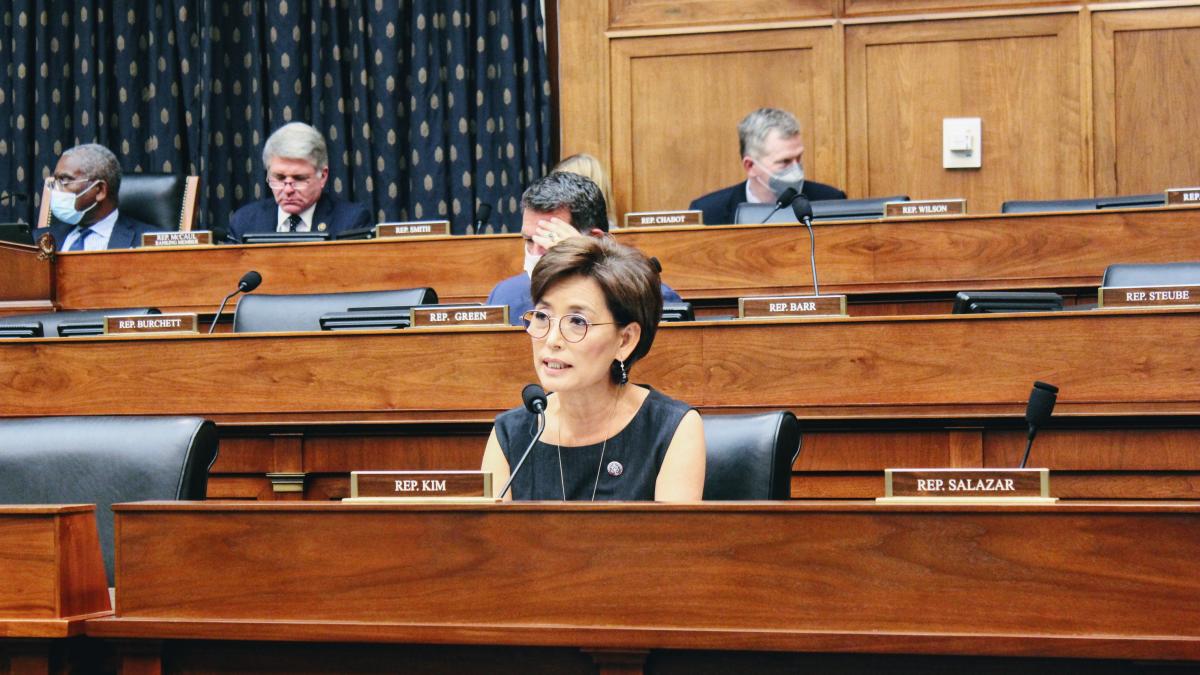Washington, DC – As first reported by Axios, U.S. Representatives Young Kim (CA-39) and Ed Case (HI-01), co-chairs of the Problem Solvers Caucus China Working Group, led a bipartisan letter to press Meta CEO Mark Zuckerberg on organizations with ties to the People’s Republic of China or Chinese Communist Party (CCP) running ads on Facebook and other Meta platforms spreading pro-Russia reporting during Russia’s unprovoked invasion of Ukraine.
“While Meta blocked Russian organizations from running ads sharing pro-Russia propaganda as Vladimir Putin invades a free and sovereign Ukraine, Meta is not only allowing CCP-backed organizations to spread the exact same misinformation but also profiting from it,” said Kim. “We cannot sit idly by as Chinese government officials act as puppets for Vladimir Putin’s regime. I thank my colleagues for joining me in this letter and look forward to Mark Zuckerberg’s response. I will continue to do all I can to support the brave people of Ukraine as they defend their freedoms and livelihoods.”
Reps. Kim and Case were joined in sending the letter by Reps. Brian Fitzpatrick (PA-01), Jim Costa (CA-16), Bruce Westerman (AR-04) and Abigail Spanberger (VA-07).
Read the letter here or see highlights below.
We write to you with deep concern regarding advertisements run by Chinese-based organizations and broadcasters amplifying pro-Russian talking points about Russia’s invasion of Ukraine proliferating on Facebook.
Following the Russian invasion of Ukraine in late February, Facebook and its parent company Meta took steps to block Russian state media and affiliated outlets from running ads and monetizing content on its platform to combat the spread of Russian disinformation. On March 5, 2022, the Russian government responded by blocking Facebook’s access in country.
Despite these actions to stem the spread of disinformation from the Kremlin as Russian forces continue to unjustly attack Ukrainian forces and target unarmed civilians, Facebook has not focused on Chinese state broadcasters and affiliated accounts from buying ads and targeting global users with pro-Russian narratives on the Ukraine invasion. This practice also continues despite a policy announced by Meta in 2020 to block state-controlled media outlets from buying advertising in the U.S. but failing to prohibit those outlets from buying ads targeting users abroad.
In just one example in this month alone, reporting from Axios revealed that state-controlled network China Global TV Network (CGTN), which has an audience of nearly 118 million on Facebook and 2.4 million on Instagram, placed at least 21 ads on Facebook featuring proRussian reporting on the Ukraine invasion.1 This is even more troubling considering Chinese outlets on your platforms, and even China’s Foreign Minister, are parroting Kremlin disinformation including false reports of Russian forces targeting U.S. biolabs in Ukraine; something which may be used as a pretext for a false flag operation to justify broader violence against civilians.
This is emblematic of a larger push by Chinese Communist Party-directed propaganda operations to influence global dialogue and policy on Russia’s unprovoked invasion of Ukraine and must be met with a strong, coordinated public-private response.
By March 31, 2022, we respectfully ask that you respond to the following questions:
1. What steps is Meta taking to ensure that Russian disinformation on the Ukraine invasion is not proliferated to U.S. and global audiences through non-Russian outlets and accounts, including CCP-affiliated accounts?
2. Please describe efforts being taken by Meta to expand its 2020 policy decision to block state-controlled media outlets from buying advertising in the U.S. to blocking targeting global audiences as well.
3. What steps are being taken by Meta to improve its fact-checking efforts to counter disinformation on the Ukraine invasion for U.S. and global audiences, especially those in Ukraine and Eastern Europe?
4. According to Meta’s advertising library, how much money have Chinese state broadcasters, including CGTN, spent on ads amplifying Russian disinformation on the Ukraine invasion? Which countries were targeted with these ads and how many people were reached?
a. What steps are being taken to improve the transparency of Meta’s advertising library to ensure state-funded ad buys are accurately reported to the public?
5. How many employees of Meta are fluent in Russian, Ukrainian, Mandarin, Polish, and other relevant languages that have been used for targeted disinformation campaigns?




